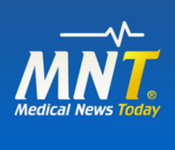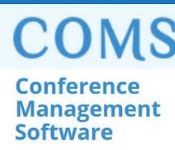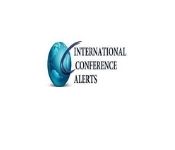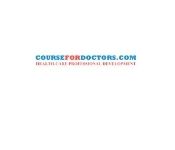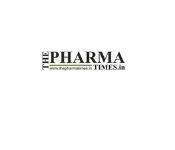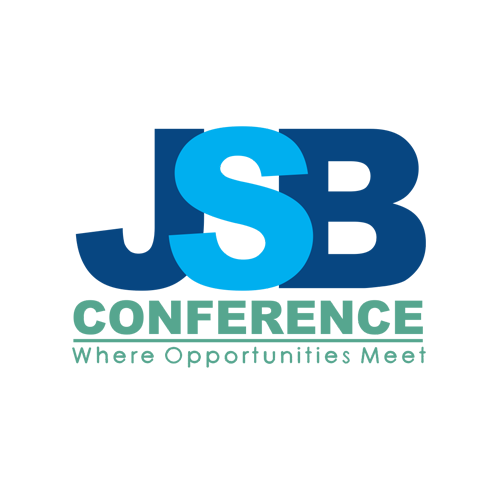Theme: Latest Innovation In Cardiology Research
Cardiology Meeting 2021
Conference Series LLC Ltd proudly invites all the participants and sponsors across the globe to attend the “Annual Summit on Cardiology and Heart Diseases” during November 05-06, 2021 Webinar
The main focus and theme of the conference is “Reconnoitring Challenges Concerning Prediction & Prevention of Heart Diseases”. CARDIOLOGY MEETING 2021 strives to bring renowned Cardiologists, Cardiovascular online visitors ranging from Researchers, Academicians and Business professionals, who are working in this field, students and Business delegates under a single roof providing an opportunity to share the knowledge and scientific progress in the field of Cardiovascular Research and Clinical Cardiology shaping the future research.
Our conference includes a well-balanced line up of speakers, covering both broad and specific topics of interest. Our aims to provide cardiac physicians, specialists, nurses, technologists and anyone professionally involved in Cardiovascular Disease with an opportunity to learn about the complexity of the disease, discuss interventional procedures, look at new and advanced cardiac practices and their efficiency and efficacy in the treatment of various cases, and understand local realities and practical constraints in improving patient-care. The CARDIOLOGY MEETING 2021 will be organized around the theme "One step forward towards the Advancements in Cardiovascular Research and Heart Diseases ".
Conference Series LLC Ltd organises 1000+Conferences Every Year across USA, Europe & Asia with support from 1000 more scientific societies and Publishes 900+Open access Journals which contains over 60000 eminent personalities, reputed scientists as editorial board members.
The Cardiovascular Research conference interrelates with members across the globe focused on learning about Global Cardiovascular Research and Heart Diseases and its specialties. This is the sole best opportunity to reach the major participants. Sharing the knowledge and demonstrations, information and B2B meetings with industrialists and potential clients to make a splash with innovative products live and brand recognition at this event. World prominent speakers, the most recent techniques, and the cutting-edge updates in Cardiovascular Medicine and Cardiac Surgery are hallmarks of this conference.
CARDIOLOGY MEETING 2021 will join world-class teachers, scientists, Surgeons and cardiologists to discuss methodology for ailment remediation for heart, Thoracic region, Electrocardiography, Heart Failure, Nuclear Cardiology and stroke.
Target Audience:
General Cardiology
Interventional Cardiology
Cardiac Surgeons
Heart Failure
Health-care
Clinical EP
Internal Medicine
Pediatric Cardiology
Preventive Cardiology
Cardio-thoracic Surgery
Cardiology Imaging
Emergency Medicine
Cardiac Oncology
Pharmacology
Echocardiography
Cell Biology
Vascular Medicine
Physiology
Hypertension
Pharmacy
Cardio Vascular Medicine
Cardiovascular and Thoracic Surgery Instruments
Track 1:Cardiovascular Toxicology and Pharmacology
Cardiovascular Toxicology is the field which primarily targets to the adverse effects on the heart or blood systems that result from exposure to toxic chemicals. It elaborates safety data of detrimental effects of new cardiovascular medicines. Pharmacology of vascular endothelium deals with modifications of endothelial cells and the vasculature play a crucial part in the pathogenesis of a wide range of the most dreadful of human diseases, as endothelial cells have the vital role of participating in the maintenance of patent and functional capillaries.
Track 2:Interventional Cardiology
Andreas Gruentzig is known as the father of interventional cardiology after the development of angioplasty by interventional radiologist Charles Dotter which is mainly deals with the catheter based treatment of structural heart diseases. A large number of procedures can be done on the heart by catheterization where the most frequently includes the insertion of a sheath into the femoral artery and cannulating the heart under X-ray visualization(fluoroscopy). For cannulation, the radial-artery also can be used and this method having numerous advantages which consist of the accessibility of the artery in most patients, the easy control of bleeding even in anticoagulated patients, the enhancement of relief because patients are ble to sit and walk immediately following the procedure, and the near absence of clinically significant sequelae in patients with a normal Allen test. In the other side to this methodology include spasm of the artery & pain, inability to use larger-catheters required in various procedures and also more radiation exposure.
Track 3:Cardiac Nursing
Cardiac nursing is a nursing specialty that works with patients who suffer from various conditions of the cardiovascular system. Cardiac nurses help treat conditions such as unstable angina, cardiomyopathy, coronary artery disease, congestive heart failure, myocardial infarction and cardiac dysrhythmia under the direction of a cardiologist. Cardiac nurses perform postoperative care on a surgical unit, stress test evaluations, cardiac monitoring, vascular monitoring, and health assessments. Cardiac nurses work in many different environments, including coronary care units (CCU), cardiac catheterization, intensive care units (ICU), operating theatres, cardiac rehabilitation centers, clinical research, cardiac surgery wards, cardiovascular intensive care units (CVICU), and cardiac medical wards.
Track 4:Cardiovascular Surgery
Cardiovascular surgery is also known as thoracic surgery which is operated on the heart or great vessels by cardiac surgeons and it is the field of medicine involved in surgical treatment of organs inside the thorax. There are five types of cardiac surgery Open heart surgery Modern beating-heart surgery Heart transplant Coronary artery bypass grafting Minimally invasive surgery and surgeries are done to treat complexity of ischemic heart disease, correct congenital heart disease, or treat valvular heart disease from various causes including endocarditis, rheumatic heart disease and atherosclerosis and advancement of cardiac surgery and cardiopulmonary bypass techniques has greatly reduced the mortality rates of these procedures. The surgery requires postoperative care to avoid complications. Laceration care is needed to avoid infection and minimize scarring. Swelling and loss of appetite are common, as mentioned Coronary artery bypass grafting (CABG) is the most common type of heart surgery. CABG improves blood flow to the heart.
Track 5:Anaesthesia and Cardiac Image
General anaesthesia for cardiac MRI is governed by similar principles for any anaesthetic technique in children with heart disease. High-risk imaging refers to imaging in patients with medical or health-related risks, imaging with equipment-related risks, and procedure-related risks such as MRI-guided surgery, minimally invasive procedures. MRI can be performed in patients who have undergone previous cardiac surgery. Absolute contraindications include patients with pacemakers and defibrillators. A Deep sedation or general anaesthesia is indicated in neonates, infants and small children for MRI. The challenges during MRI include limited access to patient and equipment, low ambient temperature with risk for hypothermia and a noisy unfamiliar environment with the remote location from the operating room. Anaesthetic care for magnetic resonance imaging (MRI) as moderate sedation, deep sedation, monitored anaesthesia care, general anaesthesia, or ventilatory and critical care support.
Track 6:Molecular Cardiology
Molecular cardiology mainly targets to apply molecular biology practices for the diagnosis, prevention, treatment and mechanistic investigation of cardiovascular disease is a novel and rapid growing area of cardiovascular medicine. Being an emerging field, it has changed conceptual thinking of disease-etiology, pathophysiology and cardiovascular improvement. It has released a promising path for understanding and regulating cardiovascular disease. Scientists are closer to curing heart diseases that were thought to be incurable 20 years ago with the fast development and application of molecular biology techniques. To endorse the progression of stem cell therapy and gene therapy for heart diseases, obviously there is a necessity for thorough understanding of the molecular mechanisms of cardiovascular diseases.
Track 7:Congenital Heart Disease
Congenital heart disease is an abnormality which is present in the heart by birth. Abnormal development that occurs in the heart and in the circulatory system before birth mainly causes Cardiac abnormalities. Abnormal development can be occurred by several factors, including infection and taking certain drugs by the mother during pregnancy. Some congenital cardiac abnormalities are genetic and may be transmitted as autosomal or sex-linked traits.
Track 8:Open-Heart Surgery
Open-heart surgery is any kind of surgery where the chest is cut open and surgery is done on the muscles, valves, or arteries of the heart. Coronary artery bypass grafting is common type of heart surgery which is done on adults. During this type of surgery, a healthy artery/ vein is grafted to a blocked coronary artery. This permits the grafted artery to bypass the blocked artery & bring fresh blood to the heart. Open-heart surgery is also termed as traditional heart surgery. Now days many new heart techniques can be performed with only small incisions, not wide openings.
Track 9:Echocardiography & Cardiac Imaging
Echocardiography, also called an echo test or heart ultrasound, is a test that takes “moving pictures” of the heart with sound waves. It’s not surgery. Echocardiography uses standard two-dimensional, three-dimensional, and Doppler ultrasound to create images of the heart. It is one of the most widely used diagnostic tests in cardiology. It can provide a wealth of helpful information, including the size and shape of the heart (internal chamber size quantification), pumping capacity, and the location and extent of any tissue damage. Echocardiography can help to detect cardiomyopathies, such as hypertrophic cardiomyopathy, dilated cardiomyopathy, and many others.
Cardiovascular imaging is a central aspect of Cardiology. Cardiovascular imaging is the action or process of producing an image especially of a part of the body (Heart) by radiographic techniques. It interprets cross sectional imaging studies of the heart and vascular system. Standard imaging tests include echocardiography (Echocardiography), chest x-ray, CT, MRI, and various radionuclide techniques (Radionuclide Imaging). ‘Conference series LLC Ltd teams with CED, a Joint Accreditation Provider, as Joint Providers of CME Credits for the Cardiology Meetings consisting of physicians, cardiologists, cardiac surgeons, scientists, professors and young researchers
Track 10:Clinical Case reports on cardiology
A clinical case report on Cardiology gives an appropriate convention for all cardiologists by rendering their important clinical cases of late occurrence. Studying from medical cases provides valuable experience for clinicians, students and paramedical staff -members. Rare medical reports and conditions discovered through the latest methods of examination are energized. Moreover, studying diagnostic methods from medical cases and the interpretation of symptoms is significant to train and burgeon the thought processes which are being used in the clinical field.
Track 11:Current Research in Cardiology
Cardiology Conferences promotes the awareness against Risk factor modification about the heart diseases. Prevention, management and treatment of the cardiovascular diseases can be made by providing the cardiovascular services. It mainly reduces premature death in people with cardiovascular disease risk. By focussing on the diet and lifestyle interventions primarily the initial treatment of cardiovascular disease can be done.
It’s more likely to achieve effective treatment if the disease is recognized at its early stages. Analysis of ethnic and socio-economic differences in heart diseases and risks associated with it.
Track 12:Hypertension
High blood pressure is otherwise known as hypertension, is a severe medical condition. When the force of the blood pumping through your arteries is too strong, it generally happens. Heart pushes blood through your arteries to the rest of your body when it beats. Your blood pressure goes up, when the blood pushes harder against the walls of your arteries. In a day your blood pressure may be different at different times. When you first wake up, after you exercise, or when you are under stress, it is usually higher. It is normal having higher blood pressure for short amounts of time. But, when your blood pressure stays high for most of the time, it can cause serious health problems.
Track 13:Cardiovascular Medicine
Cardiovascular Medicine is the widespread provider of cardiovascular amenities converging in the detection, management, treatment & prevention of several cardiovascular diseases. The specialty of cardiovascular medicine emphases on the diagnosis and treatment of diseases of the heart and blood vessels or the vascular system, which include: coronary artery disease, heart rhythm disorders, heart failure, congenital heart defects, heart valve disease, heart muscle disease, and disorders of the vascular system including the aorta and other vessels.
Track 14:Cardiovascular Diseases
Cardiovascular disease is a class that includes the blood vessels or heart diseases. Cardiovascular disease comprises of coronary artery diseases such as myocardial infarction, angina pectoris. They even include few other diseases like stroke, heart failure, hypertensive, heart disease, rheumatic heart disease, cardiomyopathy, arrhythmias, congenital heart failure, valvular heart disease, carditis, aortic aneurysms, thromboembolic disease.
Track 15:Cardiac Surgery
Cardiac surgery, also called heart surgery which involves surgical operations performed on the heart under to correct life-threatening conditions. The surgery can be either open-heart surgery or minimally invasive surgerydepending on the condition to be corrected. The purpose of cardiac surgery is to improve the quality of life of the patient and to extend the patient's lifespan.
Track 16:Clinical Cardiology
Clinical cardiology is the branch of internal medicine that deals with malfunctions and disorders related to heart in humans and animals. The field includes diagnosis and treatment of heart failure, congenital heart defects, coronary artery disease, valvular heart disease and electrophysiology. It is manly dependent on the circulatory system or circulatory process also called the cardiovascular system. In circulation process, Blood carries oxygen and nutrients from your heart to the rest of the body through a complex network of arteries, arterioles, and capillaries whereas the deoxygenated blood is carried back to your heart through venules and veins. The physicians who are specialized in this field are called cardiologists. The Cardiothoracic surgeons or Cardiac surgeons are the ones who are specialized in cardiology from general surgery. Clinical Cardiology plays a major role in coordination of research in medical diagnosis, cardiovascular medicine and cardiovascular surgery.
Past Conference Report 2020
Conference Series organized the 2nd Global Cardiovascular Research and Clinical Cardiology on December 06-07, 2020 in Montreal, Canada was organized with a focus on “Insights of Cardiology & Healthcare”.
It was a great success where eminent keynote speakers from various reputed universities and organizations made their resplendent presence and addressed the gathering.
Heart Congress 2020 Organizing Committee would like to thank the Moderator of the conference, Mr. Ali Mansour, University of Picardie Jules Verne, France who contributed enormously to the smooth functioning of this event.
Conference series LLC Ltd would like to convey a warm gratitude to all the Honourable guests of Heart Congress 2019:
Abeer M. Mahmoud, University of Illinois at Chicago, USA
Krzysztof Bartus, John Paul II Hospital, Poland
Fauzia Zalwango, Infectious Diseases Institute, Uganda
Ali Mansour, University of Picardie Jules Verne, France
Namwanje Zulupher, Ministry Of Health, Government of Uganda
Abel Gidey, Pediatrics Ayder Comprehensive Specialized Hospital, Ethiopia
Heart Congress 2020 witnessed an amalgamation of peerless speakers who enlightened the attendees with their knowledge and confabulated on various new-fangled topics related to the field of Cardiology and Cardiovascular Diseases.
Abeer M. Mahmoud, University of Illinois at Chicago, USA presented a paper on “Obesity-associated Hypoxia Contributes to Aberrant Methylation of Genes Implicated in Inflammation and vascular Function”;
Krzysztof Bartus, John Paul II Hospital, Poland, gave a presentation on “Left atrial appendage occlusion with LARIAT for stroke prevention and neuro-hormonal regulation in patients with atrial fibrillation”
Fauzia Zalwango, Infectious Diseases Institute, Uganda presented on “Rheumatic Heart Disease Treatment Cascade in Uganda, A case Study of Infectious Diseases Institute ";
Ali Mansour, University of Picardie Jules Verne, France enlightened the audience with his presentation “GFOGER Peptide Inhibits Vascular Calcification In Vitro By Blocking the Osteogenic Switch of Vascular Smooth Muscle Cells”;
Namwanje Zulupher, Ministry Of Health, Government of Uganda elucidated on “Concordance between the Different Cardiovascular Risk Scores in People with Rheumatoid Arthritis and Psoriasis Arthritis”;
Abel Gidey, Pediatrics Ayder Comprehensive Specialized Hospital, Ethiopia described about “Fulminant Course of Valvular Insufficiency on a Pediatric Patient with Systemic Lupus Erythemathosus”
NIRAJ KHATRI SAPKOTA , Chitwan Medical College , Nepal explained about the workshop titled “Waist Circumference measures predict the cardiovascular risk parameter”,
Yaser Khalid , Rowan School of Medicine, USA gave the workshop presentation on the “The Role of CHA2DS2-VASc Score vs. Anticoagulation for Predicting Morbidity and Mortality for Ischemic Bowel Disease secondary to Atrial Fibrillation”;
Khaled H Alkhodari, Al-Shifaa hospital, Palestine presented on “Coronary intercostal steal syndrome, a rare connection between the left circumflex coronary artery and intercostal arteries: A case report”
Gurmajor Singh, Chitkara College of Pharmacy, India enlightened the audience with his presentation entitled “A tertiary hospital based study involving assessment of prescription pattern of patients suffering from CAD”;
This conference was a path-breaking opportunity for students too, were given a chance to exhibit their paramount research work through Poster Presentations and discuss the same with the exalted scientists.
Featured Activities:
Heart Congress 2020 featured several scientific activities which include: Advanced Specialty Courses, Poster Presentations and Competitions, Student Competition and young researcher session.
Poster Presentation:
Heart Congress 2020 proudly presents the Poster Award Competition Winners:
Oumer Sada, Istanbul University, Ethiopia
All the papers presented at Heart Congress 2020 have been published in the proceedings of the Cardiology.
With the enormous feedback from the participants and supporters of Heart Congress 2020, Conference Series is glad to announce 3rd Global Cardiovascular Research and Clinical Cardiology on December 06-07,2020 in Montreal, Canada.
Conference Highlights
- Cardiovascular Toxicology and Pharmacology
- Interventional Cardiology
- Cardiac Nursing
- Cardiovascular Surgery
- Anaesthesia and Cardiac Image
- Molecular Cardiology
- Congenital Heart Disease
- Open-Heart Surgery
- Echocardiography & Cardiac Imaging
- Clinical Case reports on cardiology
- Current Research in Cardiology
- Hypertension
- Cardiovascular Medicine
- Cardiovascular Diseases
- Cardiac Surgery
- Clinical Cardiology
- Heart Diseases & Heart Failure
- Cardiac and Cardiovascular Research
To share your views and research, please click here to register for the Conference.
To Collaborate Scientific Professionals around the World
| Conference Date | November 05-06, 2021 | ||
| Sponsors & Exhibitors |
|
||
| Speaker Opportunity Closed | Day 1 | ||
| Poster Opportunity Closed | Click Here to View | ||
Useful Links
Special Issues
All accepted abstracts will be published in respective Our International Journals.
Abstracts will be provided with Digital Object Identifier by



